The first time I reached for a bottle of homemade car wash solution instead of my trusty commercial soap, I wasn’t convinced it could measure up. But after years of exploring effective car wash soap alternatives, I’ve uncovered some surprising truths. Did you know that ingredients from your kitchen pantry can rival that of high-end commercial products, not just on quality but on cost-effectiveness and environmental impact too? As someone who’s spent countless hours tinkering in garages and under the hood, I understand just how crucial it is to maintain your vehicle with the right cleaning products. Join me as I delve into the world of substitute car wash soap, where we’ll explore why considering alternatives may be one of the best decisions for your car — and your wallet. What follows is a deeper dive into what works, why it matters, and how you can start incorporating these alternatives into your routine today.
What are Car Wash Soap Alternatives?
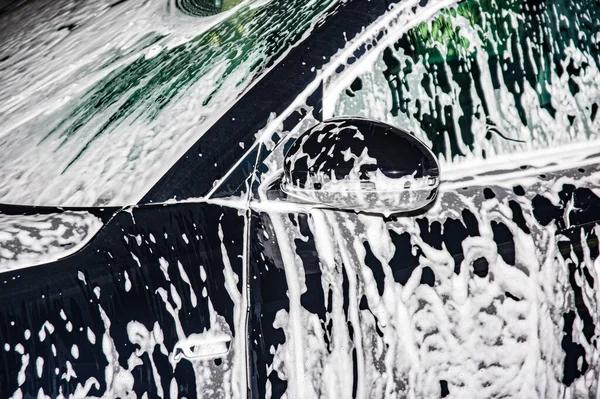
As a former Jeep engineer, my time spent wrestling with muddy trails and heavily dusted vehicles taught me more than a few tricks about maintaining vehicle finishes. Through countless experiments, I learned that keeping a Jeep’s gleam doesn’t demand specialized, commercial car wash soaps laden with harsh chemicals. Did you know that many common household items can effectively clean your car without harsh chemicals? My experiences in the off-road world have shown me that alternatives aren’t just eco-friendly; they’re also surprisingly effective at getting the job done.
For instance, a simple mix of baking soda and water forms a mild abrasive solution perfect for tackling stubborn dirt without scratching your vehicle’s paint. If you’ve got dish soap on hand, a tiny amount mixed with water can create a diluted cleaner capable of cutting through grease while still being gentle on finishes. From vinegar’s natural acidity to plain old laundry detergent, these alternatives maintain my vehicles’ integrity and shine, avoiding detrimental effects often caused by stronger, store-bought soaps.
Understanding these alternatives not only aligns with my technical background but also reinforces the practical, DIY ethos that many Jeep enthusiasts embrace. Whether you’re deep in the wilderness or just at home in your garage, these alternatives keep your ride looking pristine without compromising commercial soap dependency.
Why Use Homemade Car Wash Soap?
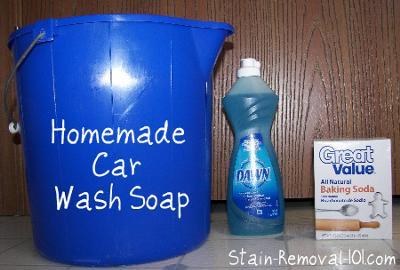
Drawing from my engineering background, I’ve seen firsthand how eco-friendly products can protect both your vehicle and the environment. What if I told you that homemade solutions can rival commercial products in effectiveness and safety? It’s true! Many don’t realize just how effective a few simple household ingredients can be when cleaning your car.
Every time I find myself diving into the depths of my garage, I find incredible potential in those overlooked items gathering dust. The beauty of homemade car wash soap is not just in the savings; it’s in the empowerment of knowing exactly what’s going onto your vehicle’s finish. I cherish the moment when personal care translates directly into tangible results without the slew of chemicals you’d find in some store-bought products.
I’ve lived through the transition from being skeptical to being wholly convinced by the effectiveness of these concoctions. I blend kitchen staples like vinegar, baking soda, and even coconut oil, transforming them into potent cleaning agents that shine my car without damaging its surface or the environment. These are not just alternatives but legitimate contenders to the commercial giants. So, I invite you to reconsider what being “clean” really means and experience the refreshingly simple joys of homemade solutions.
When to Consider Using Alternative Car Wash Solutions?
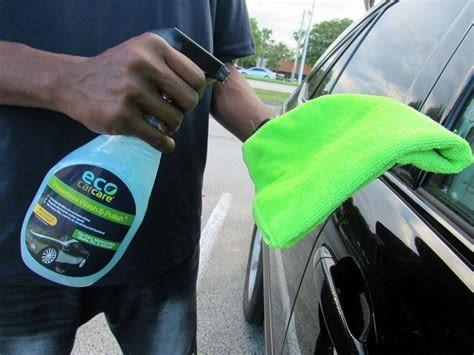
Have you ever found yourself in a pinch with no car wash solution in sight? It’s a scenario I’ve encountered more often than I’d like to admit. As someone who’s spent countless hours tinkering with vehicles, it’s usually when I’m knee-deep in a project that I realize I’ve overlooked something as simple as car wash soap. This is precisely when situational awareness becomes invaluable, and alternative solutions are worth their weight in gold.
My years in the automotive field have taught me that having a few go-to alternatives can make all the difference. Sometimes you need a quick fix that won’t compromise the finish or integrity of your car’s paint. Whether it’s a last-minute touch-up or an unexpected spill, knowing when to pivot to alternatives can be crucial for both convenience and maintaining your vehicle’s appearance.
Exploring these solutions isn’t just about necessity; it’s about understanding what works best for specific situations and why. By recognizing these moments, you equip yourself to handle unforeseen challenges efficiently, expanding your toolkit with practical, tested options that rise to the occasion.
Where to Find Ingredients for DIY Car Wash Soap?
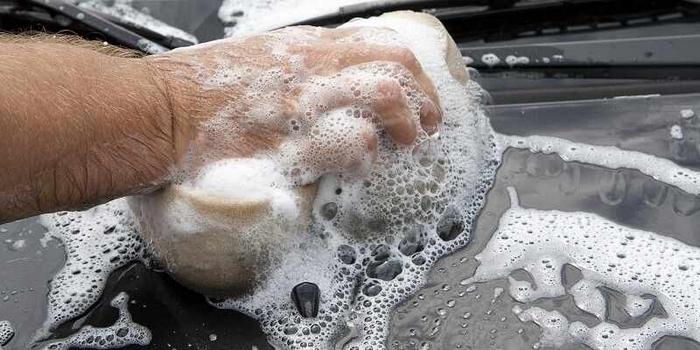
Can your kitchen pantry hold the secret to a sparkling clean car? As an automotive enthusiast with an engineer’s eye, I’ve often discovered that the most effective solutions come from unexpected places. You see, ingredients for DIY car wash soap are likely hiding in plain sight at home. Over the years, I’ve found that ordinary items like baking soda, dish soap, and vinegar can work wonders. Not only are these elements accessible, but they are also cost-effective and surprisingly efficient.
Baking soda, with its mild abrasive qualities, helps in removing grime without scratching the paint. Dish soap, while needing careful dilution, breaks down dirt and grease, and vinegar can add a bit of shine by removing water spots. My garage experiments proved these aren’t just theoretical solutions — they deliver true results. Venturing into your pantry for car cleaning solutions isn’t just about convenience. It’s about harnessing the potential of what you already have. This practical approach not only saves money but embodies a more sustainable way to maintain your vehicle.
How to Make and Use Substitute Car Wash Soap?
Step-by-step Guide to Making Homemade Car Wash Soap
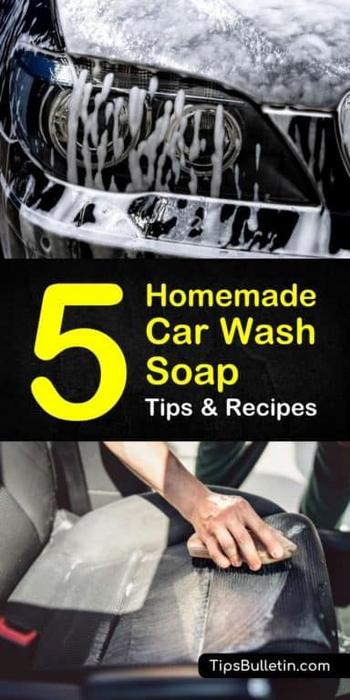
As a former engineer turned DIY enthusiast, I’ve always sought efficient and cost-effective solutions. What if crafting your own car wash soap takes just minutes and saves you money? By making homemade car wash soap, I’m not just saving cash; I’m ensuring that what touches my car is tailored for effectiveness and safety. Here’s how I do it.
First, gather your DIY car cleaning solutions. You’ll need common household ingredients: dishwashing liquid, baking soda, and a bucket of warm water. Ensuring this balance between cleansing power and gentleness is key. Start by mixing two tablespoons of dish soap with a tablespoon of baking soda in a gallon of warm water. This combination creates a potent, yet gentle soap perfect for vehicular care.
Why choose this alternative? Commercial soaps can often be a cocktail of chemicals. With my method, you control the components, ensuring a safer wash without risking the paint finish. Homemade car wash soap emerges not just as a substitute, but a calculated choice based on simplicity and resourcefulness.
Next, apply using a sponge or microfiber cloth to avoid scratches. Rinse thoroughly to ensure residue removal, and dry with a clean towel to prevent water spots. This approach reflects a philosophy of empowered and informed car care, seamlessly intertwining with the broader narrative of effective alternatives to store-bought solutions. As we explore further, you’ll discover just how versatile household items can be for maintaining your car’s luster.
Tips for Using Household Items to Wash Your Car
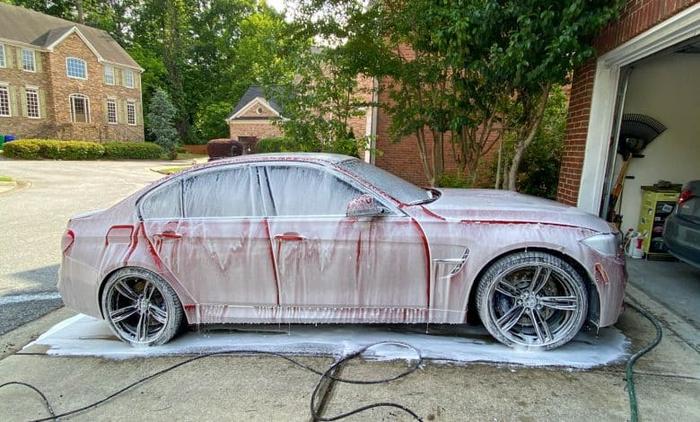
Ever thought about the hidden potential of items in your home for vehicle care? Throughout my experiences, I’ve discovered that you don’t necessarily need commercial automotive cleaning products to make your car shine. With a bit of ingenuity, many household items can double as effective car washing tools – something I’ve personally tested and can vouch for.
One of my favorites is diluted dish soap. It’s readily available and does a decent job of breaking down grime and dirt. Combined with white vinegar, it becomes a powerful cleaner that cuts through tough spots without harming your vehicle’s paint when used carefully. Similarly, baking soda can work wonders for those stubborn, stuck-on residues, especially if you’ve let the dirt accumulate over time. By mixing it with water to form a paste, you’ve got yourself a gentle, abrasive cleaner.
Another handy tip involves using soft, unused microfiber cloths or old T-shirts for scrubbing. They are gentle enough not to scratch surfaces, ensuring a pristine finish. Plus, they’re eco-friendly and repurpose everyday items. Trust me, knowing how to utilize these common household items can make all the difference in maintaining the appearance of your car.
Exploring this method is an easy alternative when you find yourself without access to store-bought solutions, making it an essential skill in DIY car maintenance.
Common Mistakes to Avoid When Using Alternatives

Having seen my share of costly mistakes in vehicle care, I can share insights to help you avoid pitfalls with alternative cleaning solutions. Are you unknowingly harming your car with the very products meant to clean it?? It’s a terrifying thought, especially when using household items as substitutes. Many drivers, eager to save money and be environmentally conscious, turn to homemade car wash solutions without realizing some might damage their car’s finish.
In my experience, one common mistake is using dish soap—a deceptively harsh cleaner that strips protective wax layers, leaving your vehicle vulnerable to environmental damage. Likewise, vinegar and baking soda, excellent cleaners in household scenarios, can be too abrasive or acidic for your car’s delicate surfaces. I’ve learned that even subtle mistakes, like mixing solutions at the wrong ratios, can diminish the effectiveness and cause more harm than good.
Through trial and error, I’ve found that being meticulous about ingredient selection and application techniques makes all the difference. It’s vital to understand the properties of each alternative cleaner and tailor them to suit your car’s needs. By sharing these insights, my hope is you’ll avoid the costly restorations many have faced by being uninformed.
FAQs
What household items can be used to wash a car?
Common household items such as dish soap, baking soda, and vinegar can be used as effective alternatives to commercial car wash soap. It’s important to dilute dish soap properly to avoid stripping wax from the car’s surface.
Is baking soda safe to use for car washing?
Baking soda can be a gentle abrasive cleaner that helps to remove stubborn stains on the car’s surface. However, it should be used in moderation and mixed with water to form a paste.
How can I make a natural car cleaner using vinegar?
Mix equal parts of vinegar and water in a spray bottle to create a natural cleaning solution. This can be used to clean windows, mirrors, and chrome surfaces. Avoid using vinegar on painted surfaces, as it can strip wax.
Conclusion
Is it time to rethink how you care for your vehicle and embrace eco-friendly practices? Throughout this article, I’ve explored various car wash soap alternatives that you can easily incorporate into your cleaning routine. By opting for DIY car cleaning solutions, not only do you reduce environmental impact, but you also gain control over the chemicals touching your car’s surface. Homemade solutions, such as mixtures of baking soda and vinegar or soap nuts, provide effective cleaning while remaining gentle on your car’s finish.
From my experience, understanding your vehicle’s needs is key. These alternative methods ensure your car gets the care it deserves while aligning with sustainable practices. As I’ve detailed, accessing affordable ingredients and following a straightforward process can be a game-changer for car enthusiasts like you and me. It’s time to embrace this shift and implement these simple, effective techniques to keep our vehicles in top condition, benefiting both us and the planet.